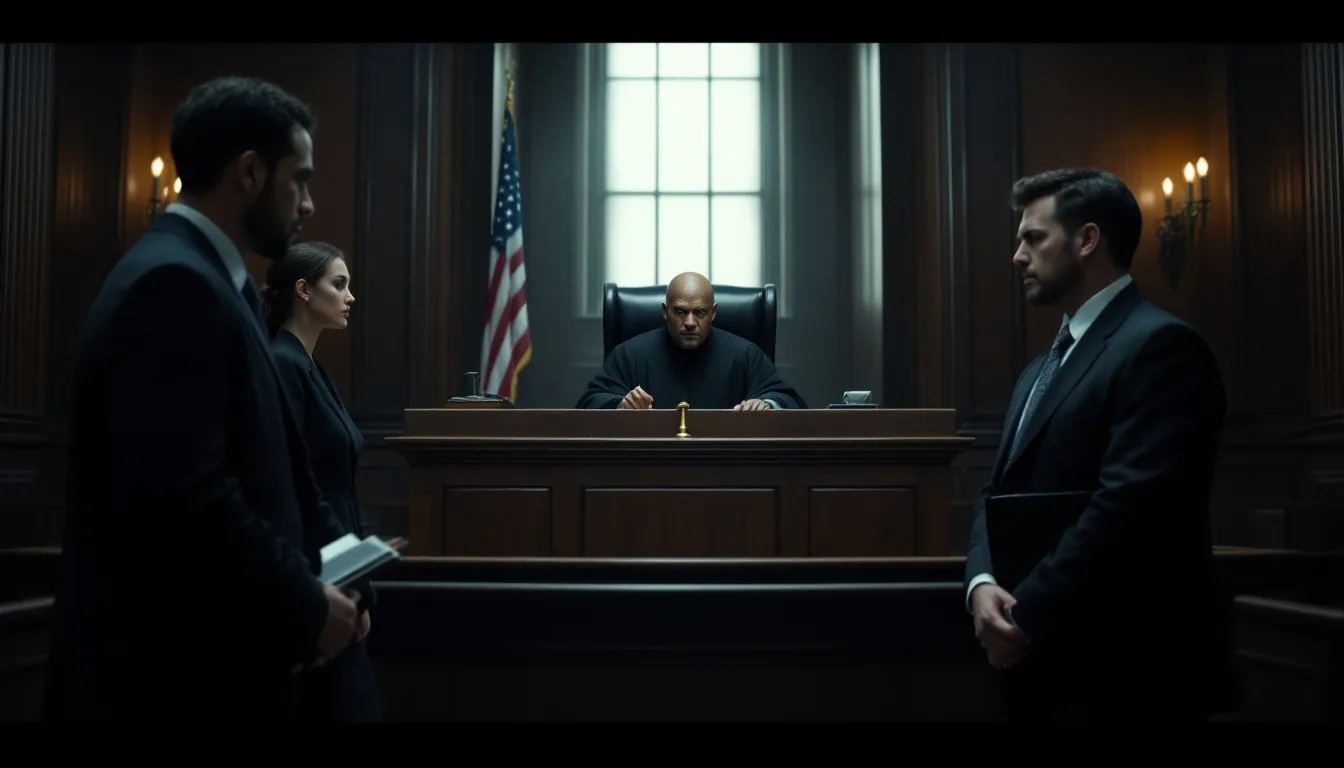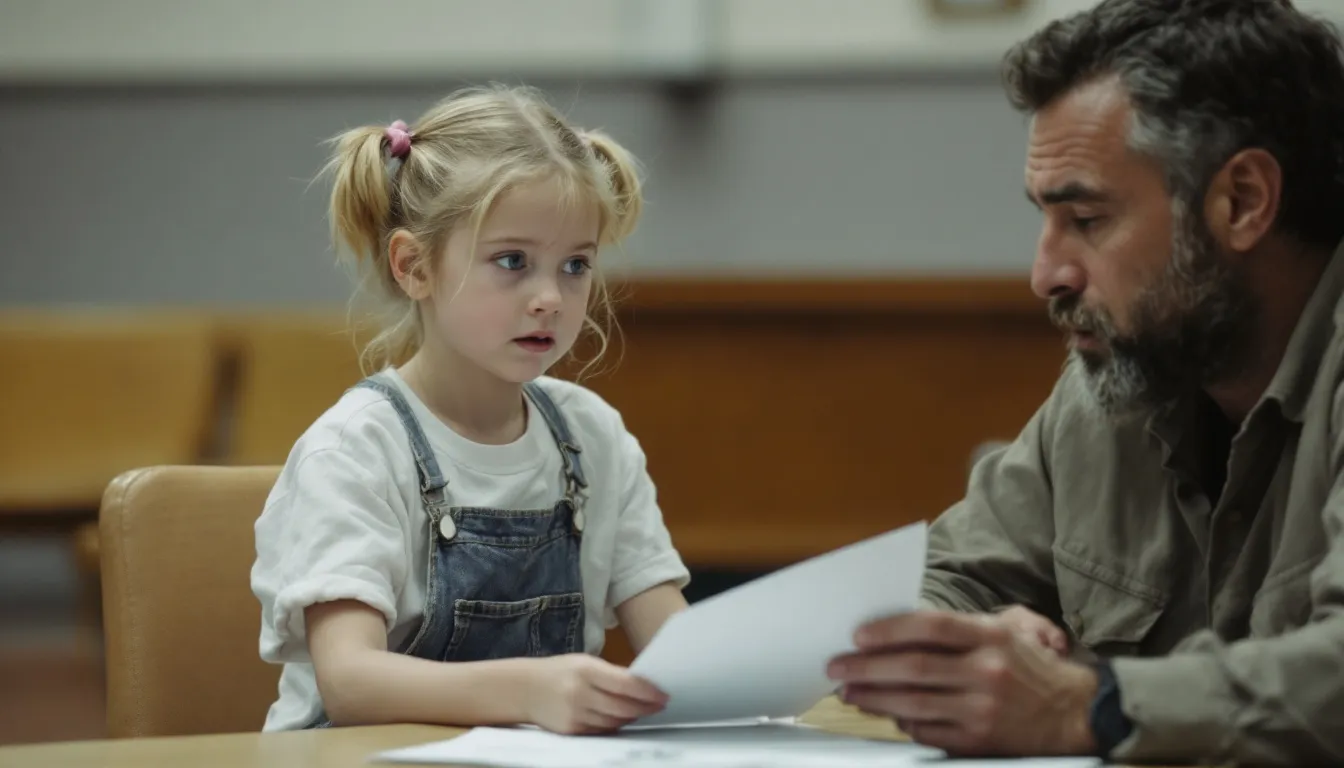Custody Lawyer California: Complete Legal Guide to Child Custody (2025)

Understanding Child Custody in California
Child custody determinations in California are among the most emotionally challenging aspects of family law. Whether you’re going through a divorce or separation, or were never married to your child’s other parent, understanding how California family law and courts make custody decisions is crucial to protecting your relationship with your child.
This comprehensive guide explains California’s child custody laws, the different types of custody arrangements, the factors courts consider when making custody determinations, and how an experienced child custody lawyer can help you navigate this complex process.
Related Terms: family law cases, joint custody, law firm, legal expertise, law offices, family members
Types of Child Custody in California

California recognizes two distinct types of custody: legal custody and physical custody. Each can be awarded solely to one parent or jointly to both parents, creating four possible custody arrangements.
Forming a child custody agreement is essential to ensure that both parents understand their rights and responsibilities.
Legal Custody: Decision-Making Authority
Legal custody refers to a parent’s right and responsibility to make important decisions about their child’s life, including:
- Education (choice of schools, tutoring, special education decisions)
- Healthcare (medical, dental, orthodontic, psychological treatment)
- Religious upbringing and activities
- Extracurricular activities and travel
- Cultural connections and heritage
Joint Legal Custody
In joint legal custody arrangements, both parents share decision-making rights and responsibilities. This means:
- Both parents have equal rights to make decisions about their child’s upbringing
- Parents must consult with each other on major decisions
- Neither parent can unilaterally make important decisions without involving the other
- Communication and cooperation between parents is essential
Sole Legal Custody
When one parent has sole legal custody, that parent has the exclusive right to make all major decisions about the child’s upbringing without consulting the other parent. Courts may award sole legal custody when:
- One parent has demonstrated poor judgment affecting the child
- Parents are completely unable to make joint decisions
- There is a history of domestic violence
- One parent has been absent from the child’s life
- Distance makes co-decision-making impractical
Physical Custody: Where the Child Lives
Physical custody determines where the child primarily resides and how much time the child spends with each parent. Understanding child custody and visitation arrangements is crucial for creating a stable environment for the child.
Joint Physical Custody
In joint physical custody arrangements:
- The child lives with both parents according to a specified schedule
- Time doesn’t have to be exactly equal, but is substantially divided
- Both parents provide homes for the child
- The child moves between households according to the parenting plan
Sole Physical Custody with Visitation
When one parent has sole physical custody:
- The child primarily lives with the custodial parent
- The other parent typically has visitation rights (also called “parenting time”)
- The non-custodial parent may have the child on weekends, specific weekdays, holidays, or school breaks
- The custodial parent handles day-to-day care and decisions
Show Image
California’s Standard for Custody Decisions: Best Interests of the Child

California family courts make custody decisions based on what arrangement is in the “best interests of the child.” While this standard might seem subjective, California Family Code Section 3011 provides specific factors courts must consider:
Health, Safety, and Welfare
The child’s health, safety, and welfare are the court’s primary concern. This includes:
- Physical safety and protection from harm
- Emotional well-being and stability
- Proper nutrition, healthcare, and education
- Adequate supervision and care
Frequent and Continuing Contact
California public policy encourages frequent and continuing contact with both parents after separation or divorce, assuming this serves the child’s best interests. Courts consider:
- Each parent’s willingness to facilitate the child’s relationship with the other parent
- History of each parent supporting the child’s relationship with the other parent
- Practical ability of each parent to maintain regular contact
Co-Parenting Capability
Courts evaluate each parent’s ability to cooperate in child-rearing decisions, including:
- History of cooperation or conflict between parents
- Willingness to communicate about the child’s needs
- Ability to put the child’s interests ahead of personal feelings toward the other parent
- Demonstrated support for the child’s relationship with the other parent
History of Care and Bond with Child
The court considers each parent’s history of providing care, including:
- Who has been the primary caregiver
- Child’s established patterns of care and emotional bonds
- Quality of the child’s relationship with each parent
- Continuity and stability of existing arrangements
Any History of Abuse
Evidence of domestic violence or child abuse significantly impacts custody decisions:
- Documented instances of abuse (toward the child, other parent, or household members)
- Criminal convictions related to domestic violence
- Substance abuse affecting parenting ability
- History of protective orders
Child custody battles can be particularly intense when there is a history of abuse, requiring careful legal navigation.
Child’s Preferences (When Appropriate)
California courts may consider the preferences of the child if the child is of sufficient age and maturity:
- No specific age when a child’s preference becomes determinative
- More weight given to older children’s preferences (typically teenagers)
- The reasoning behind the preference matters more than the preference itself
- Children don’t typically testify in court (judges may interview them privately)
Show Image
The Child Custody Process in California

Understanding the process of obtaining a custody order can help you navigate this challenging time more effectively.
Initiating a Custody Case
A child custody case begins when one parent files a petition with the family court:
- As part of divorce or legal separation proceedings
- Through a petition for custody and support of minor children (for unmarried parents)
- By filing a petition to establish a parental relationship
- As part of a domestic violence restraining order application
Mandatory Mediation
Before a judge will hear a contested custody case, parents in California must attempt to resolve disputes through court-mediated custody mediation:
- Mediation is mandatory for all contested custody and visitation matters
- Court-provided mediators help parents develop a parenting plan
- Mediation is confidential in most counties (mediator doesn’t report to the judge)
- In some counties, mediators make recommendations to the court if parents don’t agree
Mediation services play a crucial role in helping parents reach amicable agreements.
Temporary Custody Orders
While the case proceeds, the court may issue temporary custody orders:
- Establish interim custody and visitation arrangements
- Remain in effect until modified or until final orders are issued
- Can be obtained on an emergency basis if a child’s safety is at risk
- May set the pattern for eventual permanent orders
Custody Evaluation (When Necessary)
In highly contested cases, the court may order a custody evaluation:
- Licensed psychologists or social workers evaluate the family
- Evaluators interview parents, children, and sometimes others
- Home visits may be conducted
- A detailed report with recommendations is submitted to the court
- Parents usually share the cost of the evaluation
Settlement Conferences
Most family courts encourage settlement through:
- Mandatory settlement conferences with a judge or family law facilitator
- Voluntary settlement conferences with temporary judges
- Attorney-assisted negotiation
- Private mediation beyond court requirements
Court Hearings and Trial
If parents cannot agree, the custody dispute proceeds to court:
- Evidentiary hearings where both parents present evidence and testimony
- Expert witnesses may include evaluators, therapists, or teachers
- Character witnesses might testify about parenting capabilities
- Judge issues a ruling based on the evidence presented
Final Custody Orders
The court’s decision results in a final custody order that:
- Specifies the type of legal and physical custody arrangement
- Details the visitation schedule (including holidays and special occasions)
- Outlines rules for communication between parents
- May include provisions for future dispute resolution
- Can be modified if circumstances substantially change
Show Image
Common Child Custody Schedules in California
While custody arrangements should be tailored to each family’s needs, several common schedules have emerged in California custody cases:
Alternating Weeks
- Child spends one week with Parent A, the next with Parent B
- Often includes a mid-week visit with the non-custodial parent
- Provides stability by reducing transitions
- Works best for older children and parents who live near each other
2-2-3 Schedule
- Child is with Parent A for 2 days, Parent B for 2 days, then Parent A for 3 days
- Schedule flips the following week
- Provides frequent contact with both parents
- Works well for younger children who benefit from frequent contact with both parents
2-2-5-5 Schedule
- Child is with Parent A for 2 days, Parent B for 2 days, Parent A for 5 days, Parent B for 5 days
- Creates longer stretches with each parent while maintaining regular contact
- Reduces the number of transitions compared to 2-2-3
- Works well for school-age children
Every Weekend Schedule
- Child lives primarily with one parent
- Other parent has visitation every weekend (or alternating weekends)
- May include one weekday evening visit
- Common when one parent’s work schedule or location makes weekday parenting difficult
Nesting Arrangement
- Children remain in the family home
- Parents alternate moving in and out according to the custody schedule
- Minimizes disruption for children
- Usually a temporary arrangement during transition
Summer and Holiday Schedules
Most custody orders include special provisions for:
- School breaks and summer vacation
- Major holidays (often alternating each year)
- Children’s birthdays
- Parents’ birthdays
- Three-day weekends
Resolving any child custody dispute regarding holiday schedules is crucial for maintaining family harmony.
Related Terms: timely manner, extremely professional, parent’s home
Special Custody Considerations in California
Several situations require special consideration in California child custody cases:
High-Conflict Custody Disputes
When parents cannot communicate effectively:
- Detailed parenting plans with minimal room for interpretation
- Communication through approved apps or websites that document exchanges
- Specified pickup and drop-off locations (sometimes supervised)
- Parallel parenting approach that minimizes required interaction
- Appointment of a parenting coordinator to mediate ongoing disputes
A custody battle can be particularly challenging in high-conflict situations, requiring detailed parenting plans.
Relocation/Move-Away Cases
When a parent wishes to relocate with the child:
- Custodial parent must usually obtain court permission before moving
- Courts consider the child’s relationship with both parents
- Distance of the move affects the court’s analysis
- Impact on visitation with the non-moving parent
- Child’s connections to current community and school
- Reason for the proposed move
Domestic Violence Impact on Custody
When domestic violence has occurred:
- Rebuttable presumption against custody for the perpetrator
- Safeguards in parenting plans to protect the victim and child
- Possible supervised visitation requirements
- Batterer’s intervention program completion may be required
- Restraining orders coordinated with custody orders
Military Parent Custody Issues
Special provisions for active-duty service members:
- Family Care Plan requirements
- Expedited hearings when possible before deployment
- Temporary delegation of visitation rights during deployment
- Protection against permanent custody changes based solely on deployment
- Virtual visitation provisions during deployment
Disabled Children
Custody arrangements for children with disabled require:
- Consistency in medical care and therapeutic services
- Coordination of educational interventions (IEPs, accommodations)
- Consideration of the child’s ability to transition between homes
- Detailed provisions for medical decision-making
- Allocation of extraordinary care expenses
Show Image
Modifying Child Custody Orders in California
Custody orders can be modified when circumstances change substantially:
Grounds for Modification
Courts may modify custody orders based on:
- Significant changes in circumstances affecting the child’s welfare
- Parental relocation that impacts the custody arrangement
- Child’s changing needs (developmental, educational, medical)
- One parent’s consistent violation of the existing order
- Child’s preference (when of sufficient age and maturity)
Modification Process
To change an existing custody order:
- File a Request for Order (FL-300) with the court
- Clearly state the changes requested and the reasons
- Provide supporting evidence of changed circumstances
- Attend mandatory mediation
- Participate in court hearings if agreement cannot be reached
Emergency Modifications
When a child’s safety is at immediate risk:
- Ex parte hearings can be requested without standard notice
- Temporary emergency orders may be granted pending a full hearing
- Evidence of risk must be compelling and current
- Full hearing scheduled promptly to address the concerns
Enforcing Child Custody Orders
When a parent violates a custody order, several enforcement mechanisms exist:
Contempt of Court
For willful violations of custody orders:
- The violated order must be valid and clear
- The violating parent must have known about the order
- Willful disobedience must be proven
- Penalties can include fines, community service, or even jail time
Police Enforcement
Law enforcement may assist with:
- Child abduction situations
- Refusal to return a child after visitation
- Prevention of visitation interference
- Enforcement of court orders in emergency situations
District Attorney Assistance
Most California counties have Child Abduction and Recovery Units that:
- Help locate children wrongfully taken by a parent
- Enforce custody orders across county and state lines
- Assist with international custody disputes
- Work with law enforcement on serious custody violations
Show Image
Working with a Child Custody Lawyer in California
Navigating child custody disputes without legal representation can be challenging and risky.
When to Hire a Child Custody Attorney
Consider legal representation when:
- Your case involves any contested custody issues
- The other parent has hired an attorney
- Domestic violence or abuse allegations exist
- Complex issues like relocation or disabled are involved
- The other parent is violating existing orders
- You’re unsure of your legal rights
How a Custody Lawyer Helps
Experienced child custody lawyers provide:
- Guidance on California custody laws and local court practices
- Strategic advice based on your specific circumstances
- Proper preparation and filing of all necessary documents
- Strong representation in mediation and court proceedings
- Negotiation skills to reach favorable settlements when possible
- Protection of your parental rights throughout the process
Finding the Right Child Custody Lawyer
When selecting an attorney:
- Look for experience specifically in child custody cases
- Verify their knowledge of local family court judges and procedures
- Choose someone whose communication style matches your needs
- Consider their approach to conflict resolution
- Ensure they prioritize your child’s best interests
- Review client testimonials to gauge the lawyer’s effectiveness and client satisfaction
Cost of Child Custody Representation
Legal costs vary based on:
- Complexity of your case
- Level of conflict with the other parent
- Geographic location (San Diego County vs. other areas of Southern California)
- Attorney’s experience level
- Fee structure (hourly vs. flat fee for specific services)
Many family law attorneys offer flexible payment arrangements and limited-scope representation options to make legal help more accessible.
Show Image
Child Custody Mediation Tips
Success in mandatory custody mediation can lead to better outcomes:
Preparing for Mediation
- Document your proposed custody schedule
- List your child’s needs and how your plan addresses them
- Prepare to discuss co-parenting communication methods
- Bring relevant records (school, medical, extracurricular activities)
- Be ready to compromise on less important issues
- Gather evidence to build a compelling case for your proposed custody schedule
During Mediation
- Focus on your child’s needs rather than your feelings about the other parent
- Use “I” statements rather than accusations
- Listen actively to the mediator’s suggestions
- Take notes on potential solutions
- Stay calm and professional even if the other parent becomes emotional
After Mediation
- Review any proposed agreement carefully before signing
- Discuss any concerns with your attorney
- Follow the mediation agreement in good faith
- Document compliance and any violations
- Request clarification of provisions that prove problematic
Co-Parenting After Custody Decisions

Successful co-parenting supports your child’s adjustment:
Effective Co-Parenting Strategies
- Communicate directly about the child’s well-being (not through the child)
- Use business-like communication when emotions are high
- Share important information about health, education, and activities
- Support your child’s relationship with the other parent
- Maintain consistent rules and expectations between homes when possible
Co-Parenting Tools and Resources
- Court-approved communication apps (OurFamilyWizard, Talking Parents)
- Shared online calendars for activities and appointments
- Co-parenting classes (in-person and online options)
- Co-parenting counseling with specialized therapists
- Parenting coordinators for high-conflict situations
When Co-Parenting Isn’t Possible
In cases of high conflict or safety concerns:
- Parallel parenting may be more appropriate
- Communication limited to essential information only
- Detailed court orders that minimize required interaction
- Third-party communication facilitators
- Supervised exchanges or professional exchange services
Show Image
Frequently Asked Questions About California Child Custody

At what age can a child choose which parent to live with in California?
California has no specific age when a child can choose their custodial parent. Rather, courts give increasing weight to a child’s preference as they mature, particularly in the teenage years. However, the child’s preference is just one factor among many that the court considers.
Can I refuse visitation if my ex isn’t paying child support?
No. Child support and visitation are separate issues under California law. You cannot legally withhold visitation because of missed support payments. Doing so could result in contempt charges against you and potentially a modification of custody in the other parent’s favor.
Can grandparents get custody or visitation rights in California?
Yes, under specific circumstances, non-parents such as grandparents can petition for visitation if they had a pre-existing relationship with the grandchild. For custody, grandparents typically need to prove that parental custody would be detrimental to the child and that grandparent custody is in the child’s best interest.
How do California courts handle custody for unmarried parents?
When parents are unmarried, the mother automatically has legal and physical custody until paternity is established and a court issues custody orders. Once paternity is established (through voluntary declaration or genetic testing), the father has the same rights to seek custody as a divorced father.
Can I get full custody if the other parent has a history of substance abuse?
Substance abuse is a significant factor courts consider, but it doesn’t automatically result in sole custody. Courts may order:
- Drug and alcohol testing
- Substance abuse treatment
- Supervised visitation during recovery
- Graduated increase in parenting time with demonstrated sobriety
- Regular review hearings to monitor progress
Will moving out of the family home hurt my custody case?
Moving out doesn’t automatically harm your custody rights, but it can establish a status quo that courts may be reluctant to disrupt. If you must move out:
- Create a written temporary custody agreement before leaving
- Maintain regular contact with your children
- Document your efforts to stay involved
- Continue supporting your children financially
- Consult with an attorney about strategic timing
Conclusion: Protecting Your Parent-Child Relationship

Child custody matters are among the most emotionally challenging legal proceedings. Throughout the process, keeping your child’s best interests at the forefront of all decisions will help guide you toward arrangements that support their wellbeing while preserving your parent-child relationship.
California’s family courts aim to ensure children maintain strong relationships with both parents when possible, while always prioritizing the child’s health, safety, and welfare. Understanding the legal standards, processes, and factors that influence custody decisions can help you approach your case realistically and strategically.
Working with an experienced child custody lawyer who understands both the legal system and the emotional aspects of custody disputes can make a significant difference in achieving a positive outcome that serves your child’s needs while protecting your parental rights.
This guide provides general information about California child custody law as of 2025 but should not be considered legal advice for your specific situation. Always consult with a qualified family law attorney about your particular circumstances.













